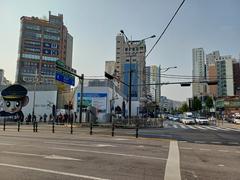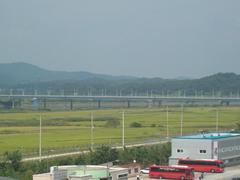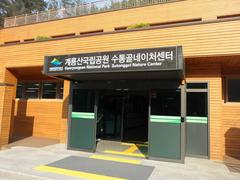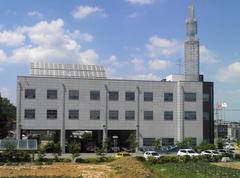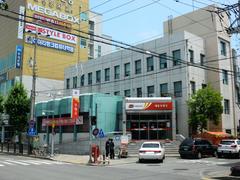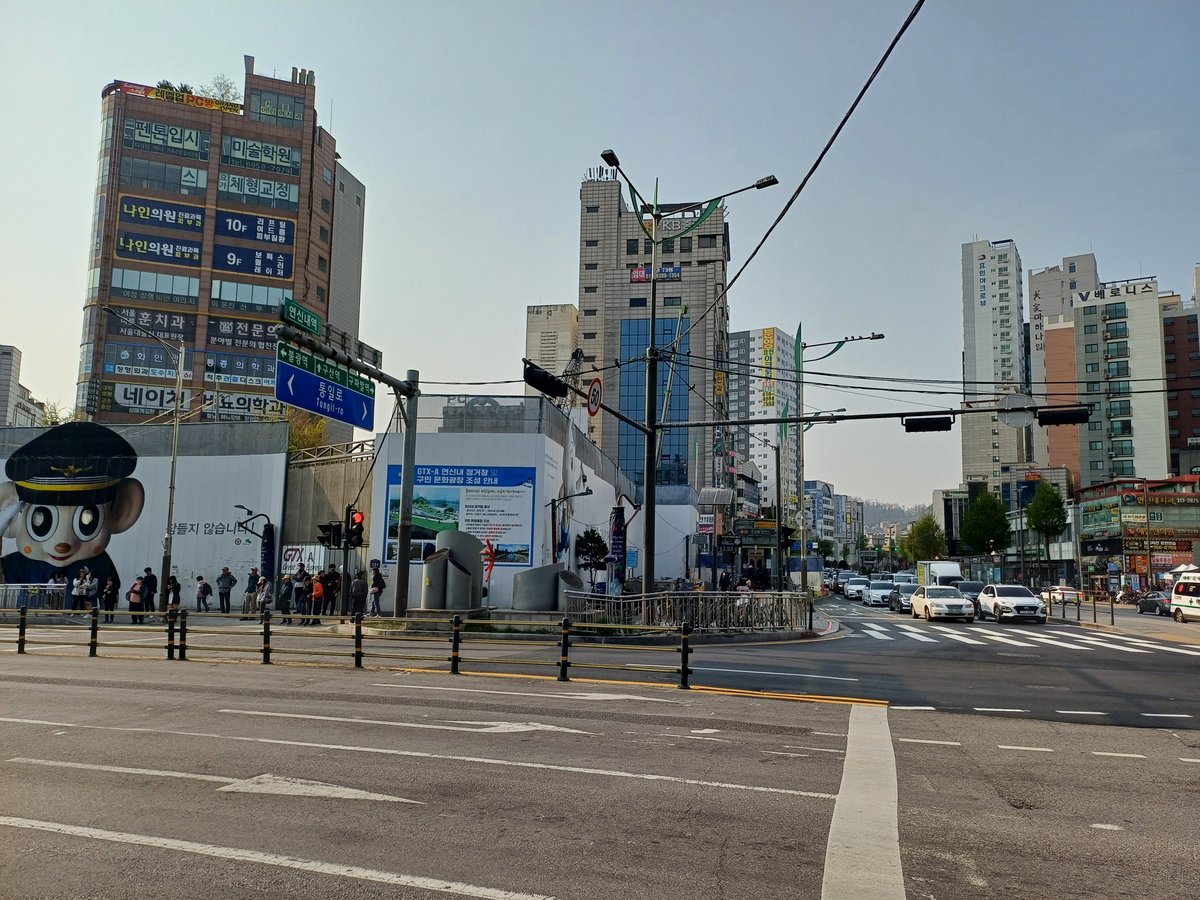
National Highway 1 in Sejong, South Korea: Visiting Hours, Tickets, and Travel Guide
Date: 14/06/2025
Introduction
National Highway 1 (국도 1호선, Gukdo 1 Hoseon) is not merely South Korea’s oldest arterial road—it stands as a living monument to the nation’s history, culture, and ongoing modernization. Stretching from Mokpo in the southwest to Paju near the northern border, this historic route offers visitors a journey through South Korea’s diverse landscapes and cultural heartlands. In Sejong, the highway forms a vital artery, connecting heritage sites, government complexes, parks, and vibrant local markets within the nation’s model smart city. This guide provides comprehensive, practical information for exploring National Highway 1 in Sejong, including historical background, key attractions, visiting hours, ticket prices, accessibility, and expert travel tips.
Origins and Historical Significance of National Highway 1
National Highway 1 was initially constructed during the Japanese colonial era (1910–1945) as a north-south trunk road. Officially designated by the South Korean government in 1946, it soon became the backbone of Korea’s transport network, linking cities such as Gwangju, Daejeon, Suwon, Seoul, and Paju. The highway has also come to symbolize the country’s resilience, post-war recovery, and aspirations for reunification, given its northern terminus at the DMZ (urbannext.net).
Urban Integration and Smart City Planning
With Sejong’s establishment as South Korea’s administrative capital in 2012, National Highway 1 was strategically integrated into the city’s masterplan. The road now links government complexes, residential neighborhoods, and business districts, underpinning Sejong’s identity as a smart city. Key features along this corridor include:
- Enhanced Accessibility: Direct connections to key public institutions, parks, and cultural venues.
- Sustainable Transport: Bus Rapid Transit (BRT) lanes, electric vehicle infrastructure, and advanced traffic management systems.
- Economic Connectivity: Efficient links to Daejeon, Cheongju, and Seoul, supporting both public administration and commerce (iurc.eu).
Visitor Information: Hours, Tickets, Accessibility, and Travel Tips
General Access and Transportation
- Highway Access: National Highway 1 is open 24/7. Multiple entry and exit points serve Sejong’s districts.
- Public Transit: BRT, local buses, and taxis provide convenient access from Sejong Bus Terminal and Osong KTX Station (koreatripguide.com).
- Driving: Foreign visitors require an International Driving Permit (IDP) and a valid home country license. Car rentals are widely available.
Visiting Hours and Ticket Information
| Attraction | Visiting Hours | Ticket Price |
|---|---|---|
| Sejong Lake Park | 5:00 AM – 10:00 PM daily | Free |
| Sejong National Arboretum | 9:00 AM – 6:00 PM (Closed Mon) | Adults KRW 2,000; discounts for children/seniors (Trip.com) |
| Bear Tree Park | 9:00 AM – 7:00 PM daily | Free |
| Sejong Museum of History | 10:00 AM – 5:00 PM (Closed Tue) | Adults KRW 1,000; Free for children under 12/seniors (Audiala) |
| Government Complex Sejong (Rooftop Gardens) | 9:00 AM – 6:00 PM | Free |
| Yeongpyeongsa Temple | 8:00 AM – 6:00 PM daily | Free; temple stay programs require booking |
| Biam Temple | 9:00 AM – 5:00 PM daily | Free |
| Handuri Bridge | Open 24 hours | Free |
- Special Events: Some festivals or events may require tickets, available on-site or via official websites.
Accessibility
- Physical Access: Most parks, museums, and public buildings feature ramps, elevators, and accessible restrooms.
- Family Amenities: Stroller rentals and nursing rooms are available at major sites.
- Parking: Ample parking is available, typically free or low cost.
Practical Travel Tips
- Navigation: Use KakaoMap or Naver Map apps for real-time updates and navigation in English.
- Best Visiting Seasons: Spring (April–June) and autumn (September–November) offer pleasant weather and beautiful scenery.
- Local Etiquette: Remove shoes before entering homes, greet elders politely, and try basic Korean phrases.
- Connectivity: Free public Wi-Fi is widespread, but consider a local SIM or portable Wi-Fi for convenience.
- Safety: Low crime rates; emergency numbers are 119 (medical/fire) and 112 (police).
Key Attractions Along National Highway 1 in Sejong
Sejong Lake Park
A sprawling urban park centered around South Korea’s largest artificial lake. Enjoy themed islands, walking and cycling paths, water sports, and seasonal flower festivals. Open daily, free entry. (Naver Blog)
Sejong National Arboretum
Korea’s largest indoor arboretum with over 2,400 plant species, themed gardens, and educational programs. Closed Mondays. (Trip.com)
Bear Tree Park
Combining botanical gardens and a bear sanctuary, Bear Tree Park is ideal for families and nature lovers. Open daily, free entry. (Naver Blog)
Sejong Museum of History
Learn about Sejong’s role in national decentralization and the design of South Korea’s administrative capital. Interactive exhibits and guided tours enhance the experience. (Audiala)
Government Complex Sejong
A modern architectural landmark with public rooftop gardens and panoramic city views. Some areas require security clearance, but public spaces are open to visitors. (Naver Blog)
Handuri Bridge
A popular spot for sunset and night photography, Handuri Bridge spans the Geum River and features pedestrian paths.
Traditional Markets
Sejong Traditional Market and Gongju Sansung Traditional Market offer local foods, crafts, and lively atmospheres.
Temples and Cultural Sites
- Yeongpyeongsa Temple: Known for its tranquil setting and temple stay programs.
- Biam Temple: Home to Sejong’s only national treasure, a three-story stone pagoda.
Activities and Events
- Outdoor Recreation: Cycling, walking trails, kayaking, and camping at sites like Hapgang Auto-Camping Site.
- Seasonal Festivals: Cherry blossom and lotus festivals in spring and summer; Sejong Festival in October with fireworks and performances.
- Eco-Tourism: Guided hikes, bird-watching, and nature workshops.
- Cultural Experiences: Temple stays, local food tours, and handicraft markets.
Sejong Lake Park Pavilion: Visitor Guide
History & Significance
Constructed to symbolize harmony between nature, technology, and governance, the Pavilion is a modern architectural highlight of Sejong Lake Park.
Visiting Information
- Hours: 9:00 AM – 7:00 PM daily
- Tickets: Free (special exhibitions may require a ticket)
- Getting There: Accessible by bus, taxi, or car from city transit hubs. Paid parking available.
- Guided Tours: Available on weekends and holidays; book in advance.
- Accessibility: Wheelchair-accessible, with family-friendly amenities.
Tips
- Visit early morning or late afternoon for the best light and fewer crowds.
- The pavilion and its reflection on the lake are popular photo subjects, especially at sunset.
Frequently Asked Questions (FAQ)
Q: Are attractions along NH1 accessible by public transport?
A: Yes, BRT and local buses serve major attractions along National Highway 1.
Q: Can I rent a bike or car in Sejong?
A: Yes, both options are widely available; an IDP is required for car rental.
Q: Do I need to book tickets to parks and museums in advance?
A: Entry is free for most parks; museums and special exhibitions may require advance booking, especially during festivals.
Q: Is Sejong safe for solo travelers?
A: Sejong is considered very safe with a welcoming atmosphere for solo and group travelers alike.
Conclusion
National Highway 1 in Sejong is more than a transit route—it’s the key to unlocking the city’s unique blend of tradition, innovation, natural beauty, and vibrant urban life. With easy access, year-round attractions, and a wealth of cultural experiences, Sejong welcomes all visitors to explore its treasures. Enhance your journey using the Audiala app for audio tours, and stay informed through official tourism channels. Whether you’re seeking a peaceful temple retreat, a lively festival, or the latest in smart city innovation, Sejong’s stretch of National Highway 1 offers something memorable for every traveler.
Useful Resources
- Audiala: Sejong Travel Guide
- Korea Trip Guide: Transportation in Sejong
- Tourist Places Guide: Top Attractions in Sejong
- Trip.com: Sejong Attractions
- National Geographic: South Korea Travel
- Sejong Zero Energy Smart City Development, urbannext.net
- Sejong Special Self-Governing City Presentation, iurc.eu
- Naver Blog: Sejong Stories
- The Broke Backpacker: South Korea Guide
